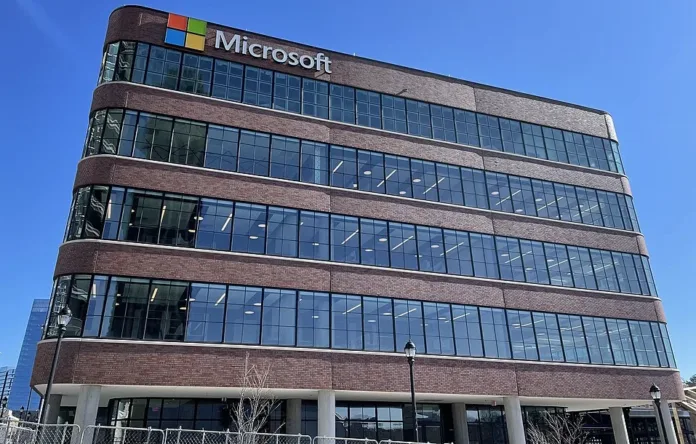Microsoft’s $30bn UK AI push hailed as historic but sparks warnings over power and control
Microsoft has unveiled a record-breaking $30bn (£22bn) investment in the UK’s artificial intelligence sector, a move its chief executive claims could transform the economy within just five years. But while the government and industry hail the announcement as a breakthrough, campaigners warn Britain could end up footing the bill for an energy-hungry tech revolution.
The deal was signed as part of a £31bn “Tech Prosperity Deal” between the UK and US firms during Donald Trump’s state visit. Prime Minister Sir Keir Starmer described it as “a generational step change” in the relationship between the two countries. “This is about creating highly skilled jobs, putting more money in people’s pockets and ensuring the benefits are felt in every corner of the United Kingdom,” he said.
The agreement includes major pledges from Google, Nvidia and others to build vast data centres to power new AI systems. Microsoft will also partner on a supercomputer project in Loughton, Essex, announced earlier this year but now boosted by fresh investment.
Microsoft boss Satya Nadella compared the coming wave of AI to the arrival of the personal computer in the 1990s. Speaking to the BBC, he said: “It may happen faster, so our hope is not ten years but maybe five.” He insisted the test of AI’s success would be measured in GDP growth, not hype.
Embed from Getty ImagesBut Nadella also acknowledged the risks. “All tech things are about booms and busts and bubbles,” he said, cautioning against both exaggeration and complacency. He admitted the energy demands of AI are “very high” but argued that new data centres would effectively modernise the UK’s power grid.
Campaigners remain unconvinced. Digital rights group Foxglove warned Britain may be left “footing the bill for the colossal amounts of power the giants need.” Others fear that dependence on American technology firms will undermine long-term sovereignty.
The scope of the investment is vast. Google has committed £5bn to AI research and infrastructure. Nvidia says it will work with partners to invest up to £11bn in the UK, calling it the largest AI infrastructure rollout in the nation’s history. UK Chancellor Rachel Reeves this week opened a £735m data centre in Hertfordshire as part of the initiative.
The north-east of England has been designated a new “AI growth zone,” with government projections of 5,000 new jobs and billions more in private investment. A data centre in Northumberland and a fresh project dubbed “Stargate UK” are also planned, involving OpenAI, Arm and Nvidia.
Nadella, who is attending Trump’s state banquet alongside fellow tech chiefs Sam Altman of OpenAI and Jensen Huang of Nvidia, said the agreement defined “the next phase of globalisation.” He rejected fears of lost sovereignty, insisting foreign partnerships strengthen digital resilience.
Yet questions linger. Microsoft itself cut thousands of jobs this year despite record profits. Nadella admitted the company must “change with the changes in technology,” calling it “the hard process of renewal.”
Meanwhile, Britain’s sluggish economy adds urgency. The Tony Blair Institute called the agreement a “breakthrough moment” but stressed that the UK must reform planning rules, speed up clean energy projects and build the infrastructure needed to turn promises into real growth.
As Trump’s visit dominates headlines, the AI pact is being sold as proof of the UK’s place at the forefront of global tech. But with warnings about energy use, overreliance on US firms and the spectre of job losses, the deal is as much a gamble as it is a prize
